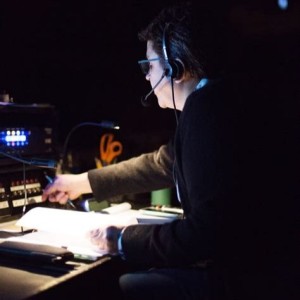
Stage Management
Introduction
When a show goes into production, the stage manager takes charge. What are the responsibilities and skills of a successful stage manager? From the initial production meetings to the final wrap of the show, the stage manager is vital to the organization and process of any performance. This guide will outline the major tasks of stage management and how they coordinate to create a successful production.
Terminology
- PSM: The Production Stage Manager.
- ASM: The Assistant Stage Manager.
- Production Meetings: Meetings with the creative team (director and designers) to discuss design elements, technical requirements, and scheduling.
- Spike: Used to notate with tape where set pieces and props belong. Often different colored tape indicates different scenes.
- Prompt Book: A version of the production script where the stage manager has entered blocking, director’s acting notes, props, light and sound cues.
- Calling a Show: The stage manager talks via a headset to deck crew, sound and light board operators, and assistant stage managers. They are often in a booth at the back of the theatre or offstage, while the deck crew and assistant stage managers are backstage.
- Tech: The period where all the technical elements of the show (lights, sets, props, costumes, and sound) are added to the work that has been done in the rehearsal room and the stage manager learns to “call” the show’s cues.
- Rehearsal Report: A report created after every rehearsal noting by department anything that the creative team needs to know based on what happened on that day’s rehearsal as well as the plan for the next day’s rehearsal.
- Performance Report: A report created after every performance noting anything of note that happened including run times, mistakes, technical issues, or audience incidents.
Context & Analysis
Stage Managers are a vital link between a production’s management team, the creative team, and the actors. Stage managers are in charge of maintaining the artistic integrity of the show as well as keeping an archive. In rehearsal this includes:
- Taping the floor - translating scale drawing from the set designer to the rehearsal room floor and taping it with different
Links & Media
Quizzes

Laura Josepher
New York-based theatre director and acting coach